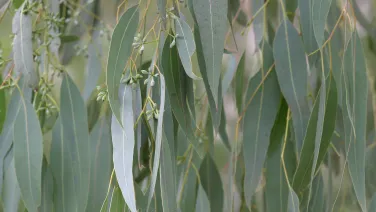Borevitz Group - Plant genomics for climate adaption
We study the genetic basis of Climate Adaptation in foundation plant species, using state of the art Genomic and Phenomic techniques
About

We study the population genetics process of adaptation in natural plant populations, using state of the art techniques in a handful of model organisms. We ask questions such as, how are populations shaped by their local environment? What traits are under selection? What are the genetic loci underlying these traits? Are alleles at these loci filtered by environmental gradients on the landscape over and above background genomic differentiation? Ultimately alleles at adaptive loci in foundation species may have an extended phenotype and determine ecosystem properties and services?
High throughput genome sequencing allows us to use Genome Wide Association Studies to determine the causative alleles and fine patterns population structure associated with adaptive trait variation. It also allows Landscape Genomic studies to determine the spatial and temporal variation of alleles at adaptive and neutral loci across environmental gradients.
Another critical tool is high resolution phenotyping by insitu imaging. These Phenomic studies are being performed on mapping populations in climate chambers to quantify growth (photosynthesis), development (photomorphogenesis), and reproduction (fitness) in real time throughout the growing season.
The Borevitz lab studies the genetic basis of adaptation in natural plant populations, spanning model organisms, foundation species and emerging crops. We develop and use Genomic and Phenomic tools for association studies in controlled climate chambers and on the landscape. Population genomics is used to map adaptive alleles and genetic structure. Phenomics is used to capture growth, development, and yield traits throughout the growing season. These studies connect genotype to phenotype and environment with the aim to better manage lands and regenerate life supporting services. Live and work in Canberra!
The Borevitz lab plays a key role in the Australian Research Council Centre of Excellence in Plant Energy Biology (PEB), a cutting edge research centre focused on better understanding the way in which plants interconvert forms of chemical energy in response to environmental change. PEB’s vision is to enhance plant energy efficiency by simultaneously optimising energy capture, conversion and use in changing environments to improve the sustainable productivity of plants.
Awards
Publications
Selected publications
- W Buss, K Yeates, E Rohling, J Borevitz Enhancing natural cycles in agro-ecosystems to boost plant carbon capture and soil storage Preprints 2020
- J Borevitz Land-based carbon drawdown for food, ecosystem and climate security 2020
- KD Murray, JK Janes, A Jones, HM Bothwell, RL Andrew, JO Borevitz Landscape drivers of genomic diversity and divergence in woodland Eucalyptus Molecular ecology 28 (24), 5232-5247
- ST Namin, M Esmaeilzadeh, M Najafi, TB Brown, JO Borevitz Deep phenotyping: deep learning for temporal phenotype/genotype classification Plant methods 14 (1), 66
- MA Supple, JG Bragg, LM Broadhurst, AB Nicotra, M Byrne, RL Andrew, Widdup A, Aitken N, JO Borevitz Landscape genomic prediction for restoration of a Eucalyptus foundation species under climate change eLife 7, e31835
Brown TB, Cheng R, Sirault XR, Rungrat T, Murray KD, Trtilek M, Furbank RT, Badger M, Pogson BJ, Borevitz JO. TraitCapture: genomic and environment modelling of plant phenomic data. Curr Opin Plant Biol. 2014 Apr (online)
Li Y, Cheng R, Spokas KA, Palmer AA, Borevitz JO. Genetic Variation for Life History Sensitivity to Seasonal Warming in Arabidopsis thaliana. Genetics. Feb 2014 (online)
Benjamin Brachi, Geoff Morris, Justin Borevitz. Genome Wide Association Studies in Plants: The missing heritability is in the field. Genome Biology, Oct 28, 2011. (online)









